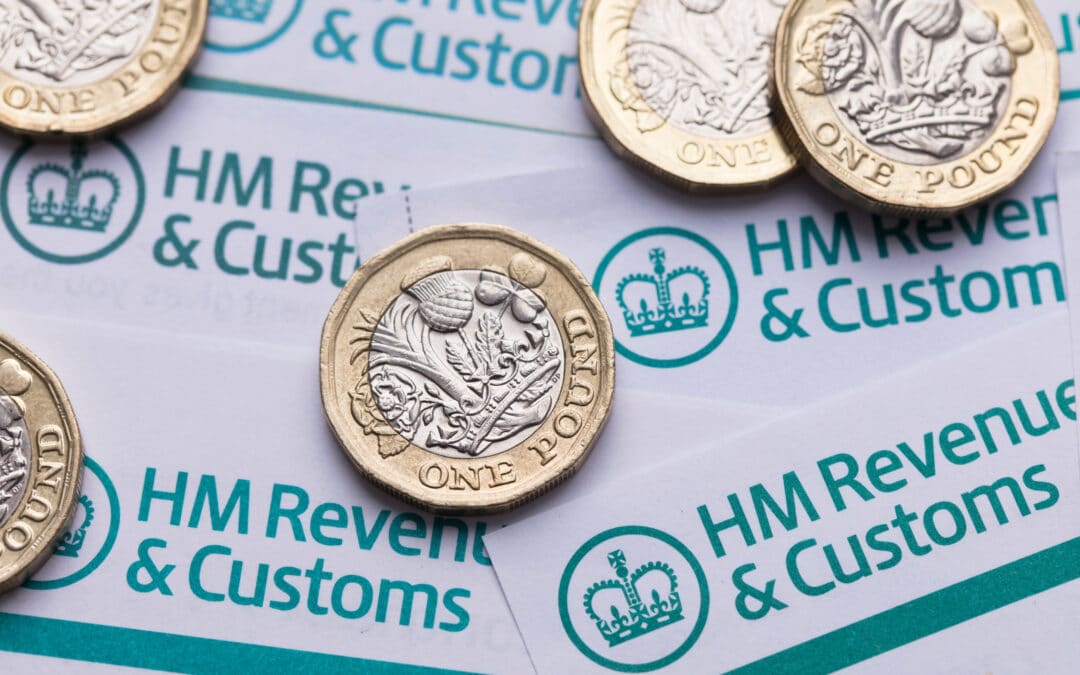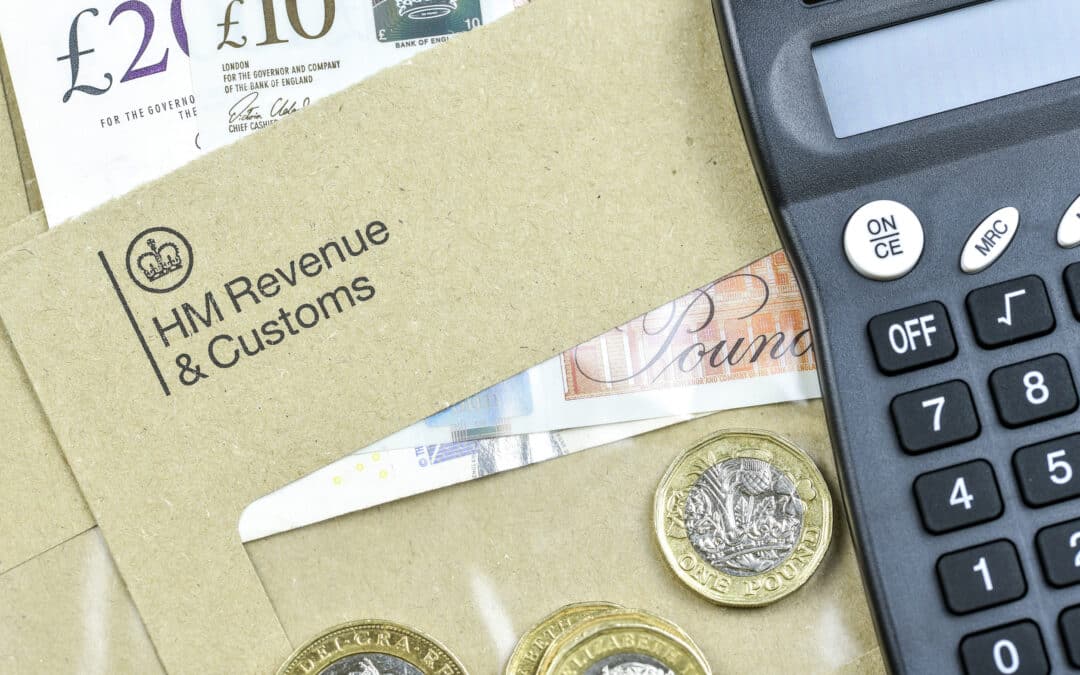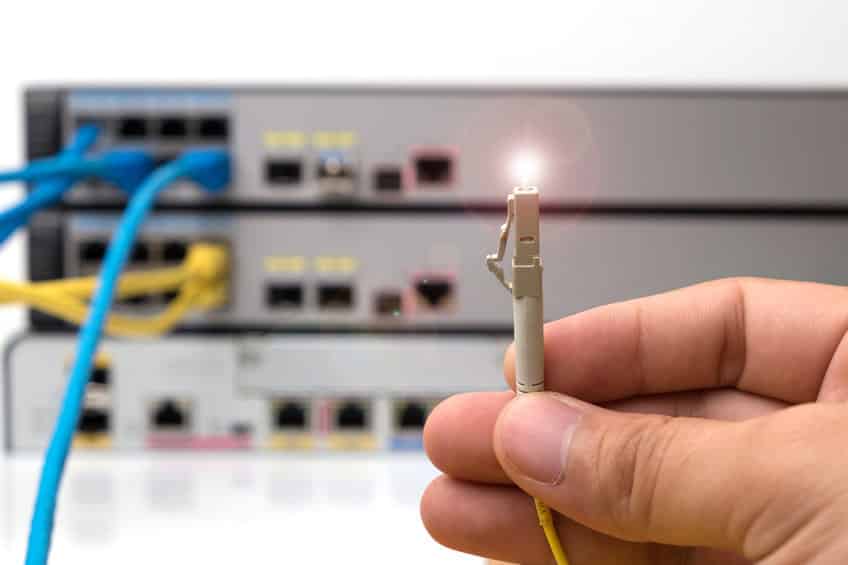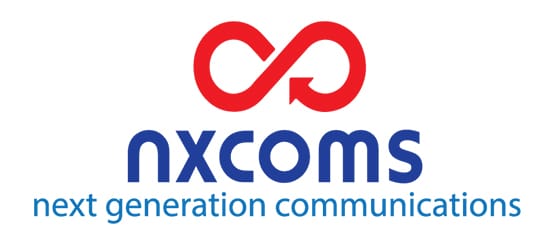
Mar 13, 2023 | Blog, News, Telephone Systems
Thinking about a new phone system? Wish you could save money and upgrade your phone system at the same time? Well, if you are quick, you could benefit from a 130% saving on your tax bill when you upgrade.
No, this isn’t some crazy incentive. This is a government-backed scheme. It’s the single biggest tax incentive of any UK government for asset investment.
But time is running out!
You Only Have Until 31st March 2023 to Claim Your Tax Relief
A new phone system can get you better performance from your team – since they won’t be constantly troubleshooting dropped lines, fuzzy calls and missing call transfers. Plus, you can get better call rates than your current provider offers. It makes sense to take this tax-saving opportunity to see what a new phone system can do for you.
Want to know more about this tax deduction scheme? Here’s everything you need to know.
The Benefits Of A New Phone System
If your company is still using an old phone system, you could be getting poor call rates and line packages that aren’t geared to your specific needs.
When you get a new phone system, you’re getting more than you might realise…
- Having the latest tech means your phone system is future-proofed and you’re protected from the big 2025 digital switch, which will leave old UK business phone systems dead.
- If you’re transferring to your new system from an old system, there’s no downtime. Your company can continue as normal without interruption.
- You can get better call rates and cheaper line rental when you upgrade to a new phone system, saving the pennies, so the pounds look after themselves!
- Bespoke packages that suit your business use instead of a one size fits all quick solution that causes your customers and staff daily headaches.
- Freedom from international call centres. Never spend another lost hour on the phone to your telephone provider’s support team halfway across the world!
So How Can I Make A Tax Saving On A Phone System?
Good question.
Well, after the pandemic, the UK government wanted to shore up the economy, so the then-Chancellor (now PM) Rishi Sunak came up with some pretty radical tax incentives. The 130% super-deduction is one of them.
The super-deduction means you can claim tax back on new equipment purchases for your business. It applies to things like vans and tractors through to office chairs and, you guessed it, telecoms. Not bad for the UK government!
There are a couple of catches, of course. Purchases have to be bought, not hired. And it doesn’t include subscriptions but can include installation, consultant and engineer fees.
The biggest thing to remember about the tax super-deduction is that it ends on March 31st 2023, so now is the time to make those purchases and make the most of the best tax deduction rate you’ll probably ever get.
How Much Can I Save Then?
There’s a reason company owners are rushing to take advantage of this tax incentive while it lasts, and that’s because you can save considerably. Let’s look at some numbers to get a clear picture of what you’ll be getting in addition to your shiny new phone system…
Say you spend £1000 upgrading your phone system. You can claim a £1300 deduction against your taxable profits, saving up to 19% of that – £247 – on your corporation tax bill.
That means whatever you spend, you’ll be saving money on your taxes, which is no mean feat.
No Time To Waste…
Time is fast running out on the scheme, so if you want to know more, now is the time to act.
If you are thinking of upgrading your phone system, then now is an ideal time. Nxcoms is already highly competitive, but factoring in the super-deduction makes it an even easier decision.
So, if you want to save money, now is the time to act. Get in touch, and we can help you make the most of the tax super-deduction.

Mar 9, 2023 | Blog, News, Telephone Systems, Voice
The 130% tax super deduction means you might actually look forward to your tax bill this year.
Back in 2021, the government announced some temporary reliefs for businesses, including a big tax super-deduction’ and it turns out you could save money on a huge range of business purchases.
But be warned; time is ticking on the opportunity to make the most of this tax super-deduction – there are just a few weeks left before it ends on 31st March 2023.
Wondering what it is and if you can make use of it? Read on…..
What Is A Tax Super-Deduction?
No, it’s not a bad superhero name. It’s a way for your company to save money on some of the essentials you bought between specific dates in 2021 and 2023.
Following the pandemic, the Chancellor announced some temporary measures to help out UK businesses in their spring 2021 budget. This included what was referred to as a ‘super-deduction’ – an increase in the tax relief available on qualifying assets. The key word there is qualifying, so keep reading to find out what exactly you can claim on.
To put it simply, it applies to expenditures incurred from the start of April 2021 to the end of March 2023. Companies can claim 130% capital allowances on plant and machinery, things like computer systems, tractors, HGVs, solar panels and robotic equipment, oh and new phone systems! So quite a lot!
Essentially, you’ll get a tax cut of 30p for every £1 spent on things that qualify. You can learn more about it here
Can Anyone Claim A Super-Deduction?
Not everyone will be able to take advantage of what is one of the government’s biggest tax incentives. But luckily, many will.
The easiest way to find out if you can claim a super-deduction is to know whether you pay corporation tax. If you do, you can claim a super tax deduction.
The people who will miss out on this saving are sole traders, LLPs and partnerships. But good news if you’re a landlord, because the government did extend it to include landlords investing in building machinery, solar, EV charge points and refrigeration.
Sounds Good. What Kind Of Purchase Does The Super-Deduction Apply To?
Now, this is the important bit. There are a lot of purchases that this big tax saving won’t apply to, and that includes things that are second-hand, used or lease hired. But…
You can buy using hire purchase and still qualify to get 130% of your asset’s cost back in tax write-offs, so long as you’re getting something new and unused.
So, what can you actually claim for? Some of the big things include…
- Cranes, diggers, excavators
- Production equipment, robotic arms
- Tractors, combine harvesters, crop sprayers
- Computer equipment and servers
- Electric vehicle charging points
That’s A Lot Of Construction Stuff. How Can A Business Make Use Of The Super-Deduction?
If you’re a company that doesn’t deal with or require a fleet of diggers or an army of robots (though we’d all love one), you can still benefit.
Outside of farming and construction industries, most businesses will be purchasing computer equipment and things like servers and other tech devices. Within this category, you can get a tax super-deduction on…
- Software like accounting programmes (not including subscriptions for software, just purchases)
- The costs associated with implementing new software or hardware
- Engineer, consultant or service costs (this can be a biggie for companies who outsource support)
Ok, So I Can Upgrade My Businesses Comms And Make A Tax Saving?
That’s right! You can get better connected and get more than your money back in tax deductions.
But only until 31st March this year, and of course, only if you’re turning enough profit to make the tax deduction worth it for you. If you’ve been thinking about upgrading your phone system, then now is the time with this limited incentive.
But act fast.
You might have heard of the ‘big copper switch-off’ happening in 2025. If not, it might be the prompt you need to consider switching to fibre optic broadband.
In 2025, it’s planned that all copper wire internet will be ‘turned off’, leaving you without any internet connection from that day. You won’t be automatically switched over to fibre.
So, if you want your company to stay connected and save money at the same time, this tax deduction is a great reason to take affirmative action.
Sound Like Something You Want To Explore?
Want to save more than you spent on asset investments? The tax super-deduction is waiting for you, but only until the end of March this year. If you want to take advantage of the super deduction to reduce the cost of your new phone system, we can help.
Let’s talk and find out how you can save while you upgrade.

Feb 27, 2023 | Blog, Connectivity, Faster Britain, News
Is your business broadband slow? Is it letting you, your staff and your customers down? Can you make 3 whole TikTok videos in the time it takes for your internet pages to load?
Have you had to give an awkward ‘sorry’ to valued customers while you earnestly hit buttons in a desperate attempt to get your business back online? There’s nothing much worse, hey?
It makes you look bad. Your business seems unreliable and unprofessional. And that’s the last thing you need.
So why is your business broadband slow?
It’s probably relying on an outdated network – made from copper. And like all outdated systems, they have to hand on the baton of glory at the end of their race.
Here’s why the copper network has passed the finish line…
What Are Copper Cables?
For many, the internet has always just been there. Even if you can remember days pre-cable-connection, no doubt you too, find it hard to imagine life now without access to the world that lives through and thanks to, the internet.
Just imagine. No online shopping, no facetime with your favourites, no Googling a term you heard someone say (and pretended to know what they meant), no learning new things through YouTube or getting the latest goss from social media. Crazy, huh?
We’re all so used to firing up our laptops or scouring social media without much thought to how it all works. Who cares how it works?! Well nobody, until it doesn’t…
Copper cables make up a vast underground network that was originally set up to allow voice calls to connect via telephones. Laid over 100 years ago (yes, that old), copper cables brought us the first working telephones. They’ve been a triumph for sure.
Those exceptional but tired copper cables link your business to the nearest connection point – those green cabinets that sit unnoticed in your nearby road, that’s them! Who knew?!
The copper cables transmit data. All that communication for your business? Passed along as electrons and electrical pulses along copper wires that are more than a century old…no wonder they’re struggling with current information transmission!
Why Are They Making Your Business Broadband Slow?
Because of the way data is transferred along copper cables; as electrical pulses running along copper wires, the information can get a little, well, lost. The longer the span of copper is, the more likely it will render your business broadband slow and unfit for purpose.
So if your business happens to operate a long way from one of those green network cabinets, you probably struggle with the chaos of slow broadband.
With so many more of our business operations requiring a broadband connection, it’s no wonder copper cables simply can’t manage to keep up with the demand. They were designed for a different era, 1877 in fact – yeah that far back. Life looks pretty different these days, doesn’t it?
Since then, copper cables have had more leases of life than a Jamie Oliver cookbook, so they can continue to deliver broadband services for our homes and businesses for as long as they have. But it’s time for them to now hang up their coats and enjoy a well-deserved rest.
We salute you, copper cables!
The Impact Of Slow Internet
Let’s be honest, while copper cables will deservedly have a large section in our history books, their shortcomings can have a disastrous impact on your business operations and reputation.
Made a big sale at a weekend show, only for your card machines to fail? Expectant queues form, but sales are impossible. Wasted time and disappointed customers. Poor broadband can literally stop your salary.
Do you or your team work remotely? Then you rely on efficient broadband to stay connected and keep your business running smoothly. Without reliable service, not only is your business broadband slow; but you’re also isolated and simply unable to provide your service. You might as well be back in 1877…
Then your staff get fed up and disgruntled. They start to murmur expletives under their breath while waiting for pages to load. They become more and more dissatisfied with their working day. They can’t get on with the job they’re paid to do. The best of the bunch will care. Bad broadband could literally cost you your talented team.
Then there are your clients and customers. What does it look like to them when you can’t see or reply to emails? When you have to apologise profusely for slow service. Or those times you can’t even chat to them ‘cos your phone line is too rubbish? They mark you as unreliable, and inefficient, then run into the arms of your competitors. Damn.
Is Your Business Broadband Slow?
“What should I do?!” we hear you cry.
Thankfully, the solution is easy and simple – fibre optic broadband is waiting in the wings, ready to be your knight in shining glass fibre.
Plus the ‘Big Switch Off’ is happening in 2025 (the copper connection will be disconnected for good), so the sooner you leave it behind, the better. Beat the business backlog by booking an appointment with a trusted provider now.
Want to know more about the ‘Big Switch Off’ and what it means for you and your business? Check out our recent post with all the essential info you need here.

Feb 8, 2023 | Blog, Connectivity, Faster Britain, News
Do you know your broadband from your fibre optic? What does fibre optic really mean, and what’s it got to do with broadband anyway?
We hear the terms all the time, don’t we? Most of us have a vague understanding of what’s being said. We catch the gist. It’s enough to get us through. Just.
Most often, ‘fibre optic’ and ‘broadband’ are used interchangeably. They’re one and the same thing, aren’t they?
Not quite. If you’re still unsure about the comparison of fibre optic vs broadband, let’s clean up the confusion…
Fibre Optic Vs Broadband: What Is Broadband?
Broadband is defined as ‘the transmission of wide bandwidth data over a high-speed internet connection’.
So that’s cleared it all up for you, right?
Didn’t think so; let’s try again…
Broadband is your ability to access the internet from your devices. Okay, we’re getting a little closer.
Third time lucky?
Basically, broadband is the connection you have to the internet. Hurrah!
But there are different types of broadband, and that’s where the confusion creeps in. How your business connects to the internet can vary, from copper networks, satellite, wireless and fibre.
Fibre Optic Vs Broadband: What Is Fibre Optic?
With this in mind, the ‘fibre optic vs broadband’ comparison is really a false one.
So what’s all this mention of fibre optic? It’s the latest and greatest internet connection around. Thin, flexible fibres with a glass core are being laid to replace the outdated copper cable network, which happens to be more than a century old – yep — definitely time for that brilliant but worn-out system to rest.
In contrast, fibre optic cables transmit all your business communications and internet happenings via light signals along the glass fibre. Light travels fast, right? So too, does fibre optic broadband.
Not only are fibre optic cables faster, but they’re also more reliable and greener too. Impressive.
Tell you more? Oh, okay then…
Fibre Optic Vs Broadband: What’s The Difference?
Up until recently, broadband has connected your business to the internet via copper cables. A network of underground cables that were originally designed for telephone calls back in 1877. We hear you, that’s really old.
How does that even work? Believe it or not, all your business communications and connections move along the copper wires as electrical pulses. But the longer the cables are, the more likely your data will get tired and lost. The result? Poor, slow internet connection. Especially if you’re working in a beautiful, but out-in-the-sticks spot.
So what’s different about fibre optic cables? They’re so much snazzier. Built for the digital age. They’re made of glass core fibres only marginally thicker than a strand of hair, yet have impressive strength. Told you they were snazzy.
And the data transfer? Not by electrical pulses that go ‘poof’ when they have to travel too far, that’s for sure. Fibre optic cables use light. Yeah, it’s a whole Christmas display happening discreetly under our feet. Cool, hey?
And just to let fibre optic show off, let’s look at the stats. Copper cables are capable of getting broadband speeds up to 80Mbps. Fibre optic broadband? They boast broadband speeds up to 1000Mbps. Woah.
Mbps mean nothing to you? Doesn’t matter. We know you can appreciate the whopping difference in those numbers and how much faster full fibre optic broadband is compared to copper.
Hasn’t fibre optic been around for ages, you ask? What’s so special about this latest version? The truth is, the big brands have had you fooled, yep, sorry about that. What once was called ‘fibre optic broadband’ was really a marketing ploy…the ‘fibre optic’ never actually ran all the way to your home or business, just to the green cabinet on the street. Oooh, those devils!
Fibre Optic Vs Broadband: The Big Switch-Off
What’s that now? A switch-off?
That’s right. In 2025, copper cable internet will be turned off for good. We’re finally saying thank you and goodbye to the copper cable era. So in the battle of fibre optic vs broadband provided by copper, one of the contestants will soon be out of the ring altogether.
What does it mean for you and your business? It’s a big deal. That’s why we’re telling you about it. And we’re gonna keep mentioning it.
If your business internet connection happens via copper cables (if you’re not on fibre, this is you), come 2025, your business will have to operate without internet.
Don’t fancy going back to business operations of the 1970s? What not up for, cash-only, clunky machines and only snail mail or leaflet dropping to let people know you exist? Impossible to carry on, you wail? Then you’d better hop to it and sort out an alternative way to keep your biz blooming.
To keep you on track with the ‘fibre optic vs broadband’ showdown, what’s the difference? All fibre optic is broadband, but not all broadband is full fibre optic. Broadband is your internet connection. Fibre optic is a (superior) type of broadband.
If your business isn’t yet connected with full fibre optic broadband, then it probably should be.
Want to know more about why your business broadband is so bad and how to fix it? Check out our recent post with all the info you need right here.

Jan 23, 2023 | Blog, Connectivity, Data, News
How important is the internet to your business? Pretty essential, probably. In fact, internet access is considered by many to be a human right – so much of our lives are conducted online, that without access to the web, things tend to grind to a halt.
So, what if, in two years’ time, your internet access was cut? No emails. No websites. No banking. No accounts. No Zoom meetings.
It’d be pretty disastrous, right?
Well, that may be a reality for businesses that don’t pull their finger out and make the switch from copper to fibre optic. Not sure what we’re talking about? Read on to see if you should be worried…
What Copper Are We Talking About?
Well, it’s not the brown coins that are soon to be re-issued with the new King’s likeness on them. We’re talking about the cables that are used to carry your internet.
Currently, many buildings throughout the UK rely on a cable system laid over 100 years ago, and like most things that age, it’s struggling to keep up with modern demand.
The original copper cable network was designed for the telephone network and did a marvellous job. But, as innovation has snowballed and our expectations of the network have increased, copper cables just aren’t up to the task anymore. So, the lines are being retired – and if they were a person, we think they’d be getting a golden handshake and a Rolex for all the years of hard work and service.
Time to make space for the new kid in town…
Fibre Optic: What’s The Fuss About?
So, with copper cable enjoying retirement, we need something that will deliver the super fast broadband we have come to expect (can you imagine going back to dial-up now?!). That’s where fibre optic cable comes in in all its glassy glory. These fine fibres have a glass core that light signals travel along – and without getting into the science lesson – it’s incredibly fast, reliable and more economical to run.
What’s The Big Switch Off?
It sounds super fun, doesn’t it? Like a reverse New Year’s Eve.
Except, it’ll be fairly destructive to your business if you haven’t prepared for it. The big switch off is more like a big switch over. As we wave goodbye to the copper network, the fibre-optic network hums into life so if you haven’t made the move over in your home or business, you’re going to be offline for a while.
And as much as we like to imagine a giant lever being pulled to stop the copper cables, it won’t be as dramatic as that. The change is actually going to be done in phases, with Openreach working to have the switch completed by the end of 2025.
How Will The Switch Off Affect Businesses?
Not that we think you’re selfish, but you probably want to know how this will affect you and your business, right? Well, here’s what you can expect.
Your broadband and phone lines will stop working
Assuming you don’t take action, your phone lines and broadband won’t work anymore, since they will be connected to a defunct network.
Tills and pay points won’t work
Ah – it gets worse! You won’t be able to process payments since most systems use the internet to function.
CCTV, alarm systems and access control disconnect
And you won’t have any security to support you either. Typically, these systems use your internet connection to run too.
It’s starting to sound like an apocalypse, isn’t it? Well, if you feel like you’re reliving the panic of midnight 1999 all over again (if you’re too young to remember the Y2k bug hysteria, you’re lucky.) – don’t.
You have plenty of time to plan how you’re going to manage the change. Plus, you have us on your team.
How To Avoid Disruption
A great man once said ‘Failing to plan is planning to fail’ and here’s where you take heed. We need to make a plan. Yes, we. You don’t have to stress about all the techy stuff because that’s what we’re for.
So, you ask, what’s the plan?
We’ll start by reviewing your technology and seeing what systems you have in place. There are things we can implement immediately that will not only protect you from the shutdown of the copper network but improve your workplace.
VoIP
Your phone will join its ancestor, the rotary dial, in the telephone history books and in its place will be a VoIP (voice over IP) system. This system works like a normal phone, but it uses your internet connection to send and receive the data so you can take your phone line anywhere you go.
What a blimmin’ life-saver if you’re ever in a pandemic and need your staff to work from home… In all seriousness, it has enabled teams to work remotely but still pick up calls from customers and colleagues. Calls are cheaper too, so it’s a really great first step in the switch.
Broadband
Your broadband keeps your business switched on. Even the most remote, rustic business likely uses the internet for something, even if it’s watching TikTok between customers. You need to know that your provider is ready for the change. In fact, you want them more than ready – you want a provider already thinking ahead to what’s next because you’ll always be prepared.
Should You Make The Switch?
If you like the feeling of impending doom and stress, then staying unprepared is fine. But if you prefer knowing that your business will seamlessly transition from an archaic system to a modern one, then starting to plan your change over is a good idea. Being an early adopter has its benefits too.
You’ll avoid the rush
2024 is going to be full of people clamouring to book engineers and appointments. And you know what high demand does to prices, right? Avoid the rush and risk of having to pay a premium by getting your workplace fibre optic ready sooner rather than later.
You’ll save £££
Like we mentioned, you can stop paying phone line rental fees as well as call costs. If you make a lot of calls or call overseas, then why wouldn’t you want to start saving money right away? You can even retain your phone number.
Faster connection
Faster internet will increase productivity. Downloads and uploads will take seconds, streaming will be uninterrupted and accessing the cloud is quicker – you’ll see how it impacts your team pretty easily.
Less disruption
Ever had your internet go down because of a fault on the line? Well, not with fibre optic. Maintaining fibre optic cables is far simpler so there will be fewer problems that result in your staff twiddling their thumbs while they wait for the connection to be restored.
Ready To Switch?
If you are ready to protect your business from the disruption that the big switch over may cause, get in touch. We already support businesses like yours with futureproof connectivity that delivers better speeds, reliability and range – join them and enjoy the slightly smug feeling of being ready ahead of time.
You can read more about the great copper switch off in our post here, and if you have any questions, we would love to answer them. You can call us on 0161 711 1100 or email fibre@nxcoms.co.uk

Sep 22, 2022 | Blog, News
Nxcoms is pleased to announce that we have joined the Speed of Sight Inspire 25 Club.
Speed of Sight is a unique charity that offers people of all ages with disabilities to enjoy the excitement and thrill of driving. Something they would never have thought would be possible in their entire lives.
Through their driving experience days, Speed of Sight help to change peoples lives and make the impossible, possible. Founded by Mike Newman, who is a 9 times World Record Holder and currently the fastest blind man on land and water on the planet, they also help awareness of the difficulties faced by disability, as well as encouraging essential team building skills, such as trust and communication.
The Inspire 25 club is an opportunity for businesses such as Nxcoms to support and change the lives of people living with life-limiting disabilities, and help fund the ongoing activities of the charity in a sustainable way.






